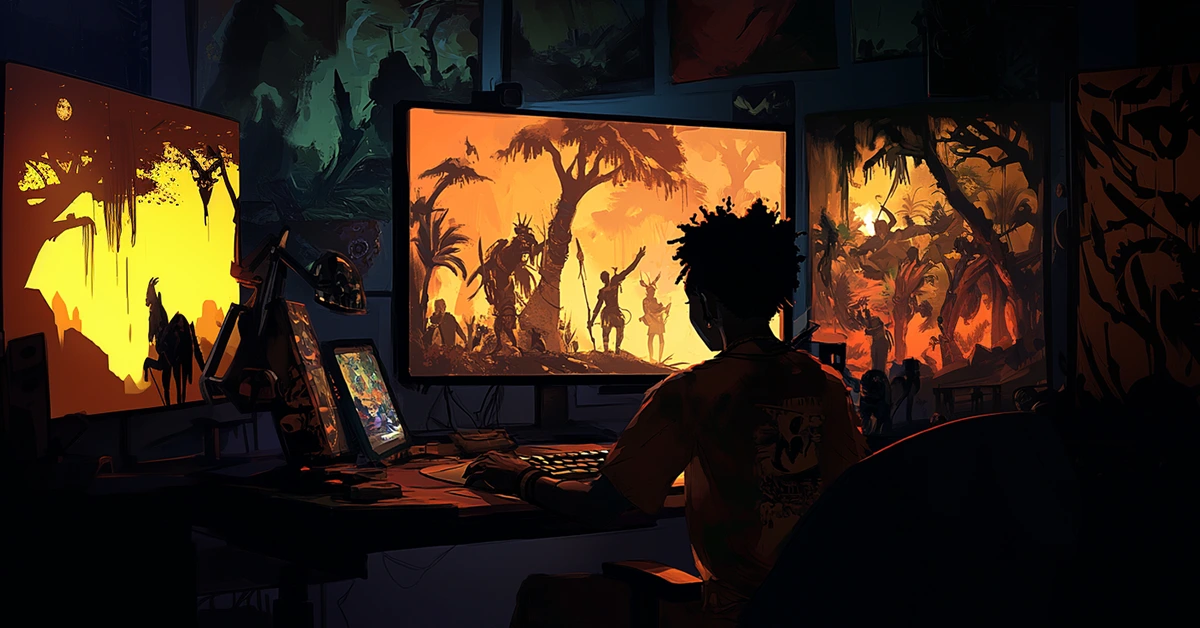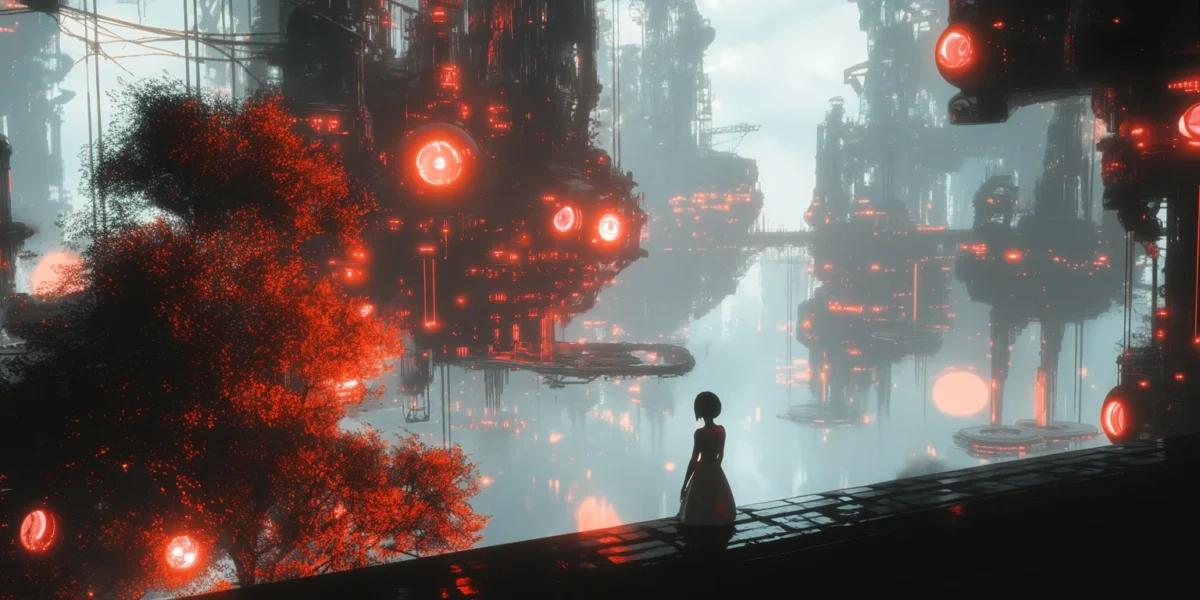To be honest, every culture is built on stories.
That’s how we pass down history, identity, and the sort of wisdom you don’t learn in textbooks.
In Côte d’ivoire, the art of the storyteller has always lived, sustained by griots, the custodians of oral tradition who spin myths, folklore and history into an indelible thread.
But where are those stories headed in 2025?
No one is sitting by the fire to listen to legends anymore.
Instead, we’re trapped in front of screens, drawn into digital worlds that suck us into epic stories.
And frankly, that’s not a bad thing.
If anything, it’s a calling, because video games could well be the future of cultural preservation.
Gaming as the New Griot

Think about it.
Traditionally, griots told stories to draw the imagination of an audience.
What are game developers up to now?
The exact same thing, but with code, art, and gameplay.
The difference?
Games don’t only tell stories, they make you live them.
Imagine stepping into the shoes of Zahouli, the guardian spirit of the Baoulé people, navigating a mystical world where every decision shapes the fate of the land.
Or playing as Queen Abla Pokou, reliving her legendary journey across the Comoé River, making choices that define a kingdom’s future.
These aren’t just history lessons, they’re playable experiences that would make anyone feel the weight of these stories in a way no classroom ever could.
How Games Can Preserve Folklore in Côte d’ivoire
Let’s talk possibilities.
Because the gaming industry is really ignoring one of the richest, most powerful storytelling potentials anywhere in the world right now…ours.
Here’s how that could change:
1. Bringing Back the Legends: Games With Stories
Titles like God of War have brought Norse mythology back into the spotlight.
It is less a legend than a story, like Japanese folklore, that thrives in games like Ōkami.
There is even African mythology breaking ground in indie games such as Aurion: Legacy of the Kori-Odan.
So where is the game featuring the mythology Côte d’Ivoire?
Picture a narrative RPG in which you play as a trickster spirit like Anansi, using wit rather than force to solve puzzles.
Or a Witcher style game, you play a hunter of creatures from West African folklore, all while trying to keep an action game deep into the narrative.
These myths already feature everything a great game requires, larger-than-life characters, high stakes, and a sense of wonder.
2. Superheroic Open-World Exploration of the History of Côte d’ivoire

Ubisoft’s Assassin’s Creed has all but established historical open-world games as their own subgenre.
But rather than Renaissance Italy or ancient Egypt, imagine pre-colonial Côte d’ivoire.
A world where players could cross the ancient Kong Empire, navigating trade routes and political alliances that shaped its legacy.
Lead the Baoulé Kingdom through history, making pivotal decisions that will determine its future.
Face off against mythical creatures from Ivorian folklore, where history and legend intertwine in an epic adventure.
This isn’t merely an opportunity, it’s an untold chunk of gaming history that needs to be told.
3. Honoring Traditional Music, Dance, and Art

Gaming is not just about story, it’s about immersion.
And what better way to immerse players in Ivorian culture than its music, dance, and art?
The Festival of Masks could be like a dance game where you perform Zaouli to unlock hidden power-ups and moves.
Or a game mechanic in which crafting Senufo-style masks and textiles isn’t merely decoration but a path to learning in-game powers.
This is where gaming excels, it transforms culture into something you interact with, rather than simply consume.
4. Sending the Culture of Côte d’ivoire to the World

The best part?
Games don’t stay local.
They travel.
A nicely built game about the folklore of Côte d’ivoire wouldn’t only be for Ivorians, it could bloom into millions of players across the world, to share stories they’ve never heard before.
How did Ghost of Tsushima get people interested in samurai culture?
That’s precisely what a great game about Ivorian myths could accomplish.
(To be frank, people are starving for new stories.)
They are done with the same old recycled tropes.
Cote d’ivoire is rich in culture that can ingrain something new, fresh, and very relevant in the world of gaming.
The Challenges (And Why They Shouldn’t Hold Us Back)

It’s not easy making games, of course, particularly in Africa, where money, publishing support, and access to game development tools are often hard to come by.
But here’s the thing: Mobile gaming is booming in Africa, a great entry point for developers.
Indie studios all over the world are demonstrating that you don’t need a AAA budget to make great games, look at how Hollow Knight and Hades dominated the industry.
Crowdfunding, partnerships, and cultural grants are making themselves available for African developers to get their games made.
The demand is there.
The talent is there.
The stories are there.
Now it’s simply about making it occur.
The Next Chapter in Ivorian Indigeneity in Games
The truth is: stories don’t die…they evolve.
Griots used to tell them with spoken words.
Well, now we can, with worlds.
A game based on Ivorian folklore isn’t just a dope concept, it’s overdue.
It’s a way to document our history, share our culture, and provide the next generation with something beyond another Western fantasy game.
Because let’s face it, if we don’t tell our own stories, then who will?
And in gaming, we don’t just tell them.
We make people feel them.



